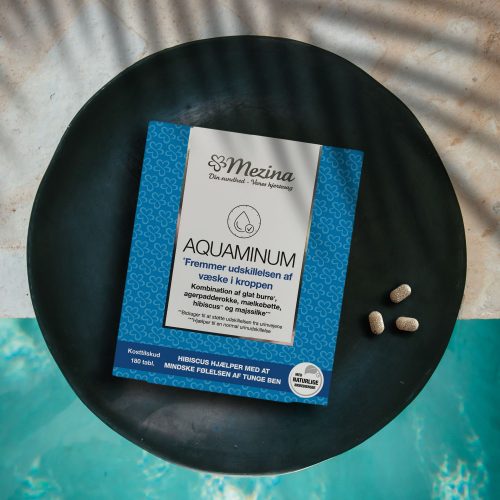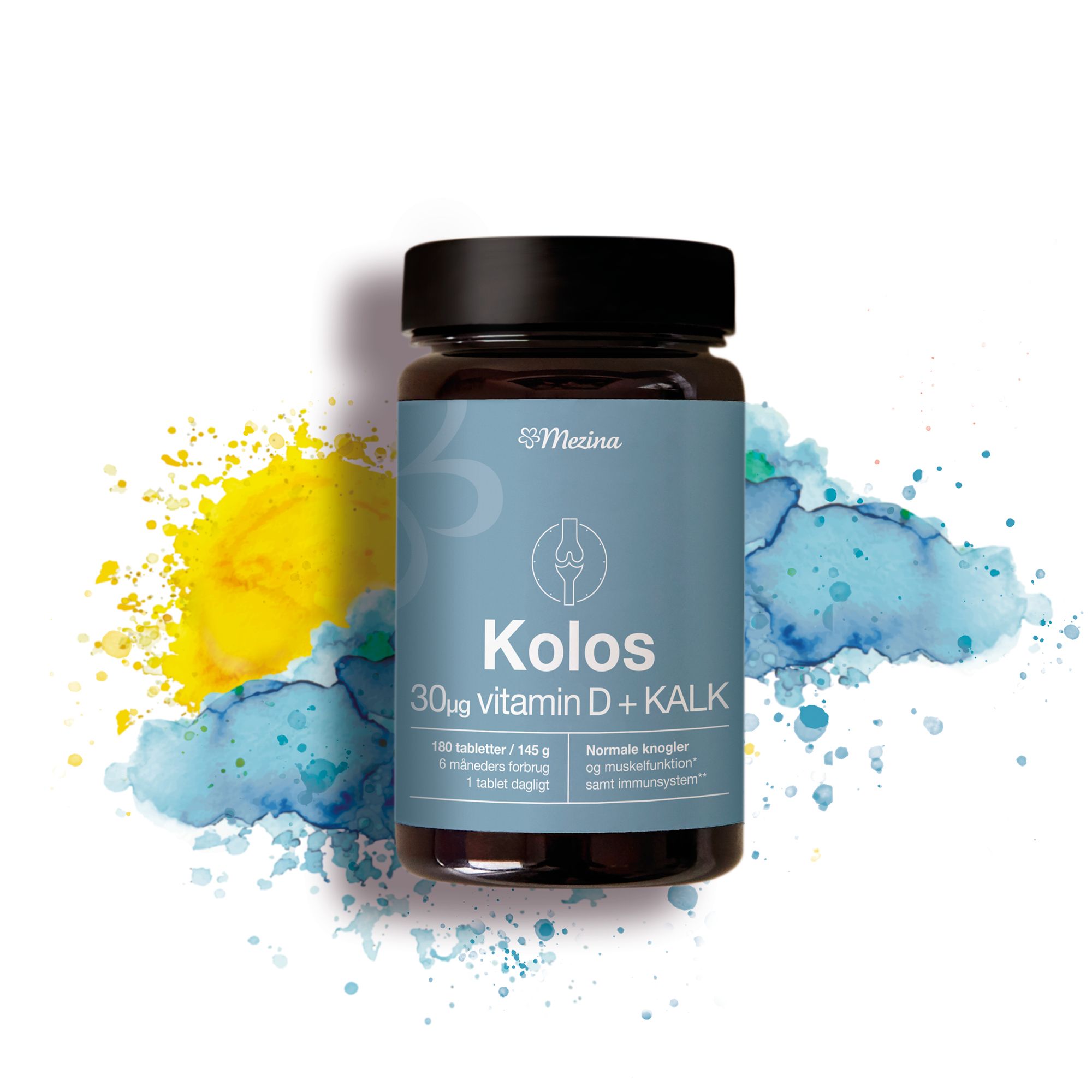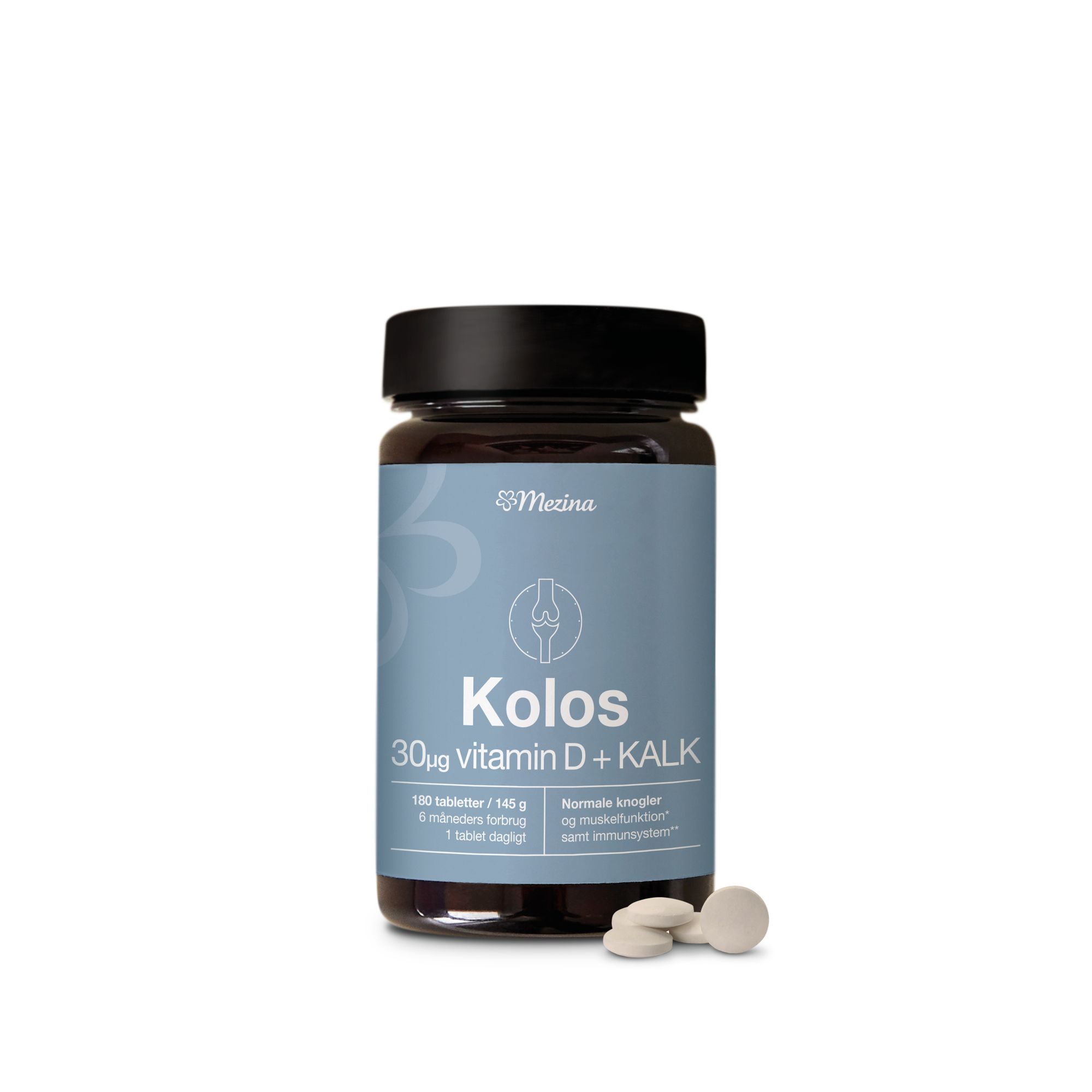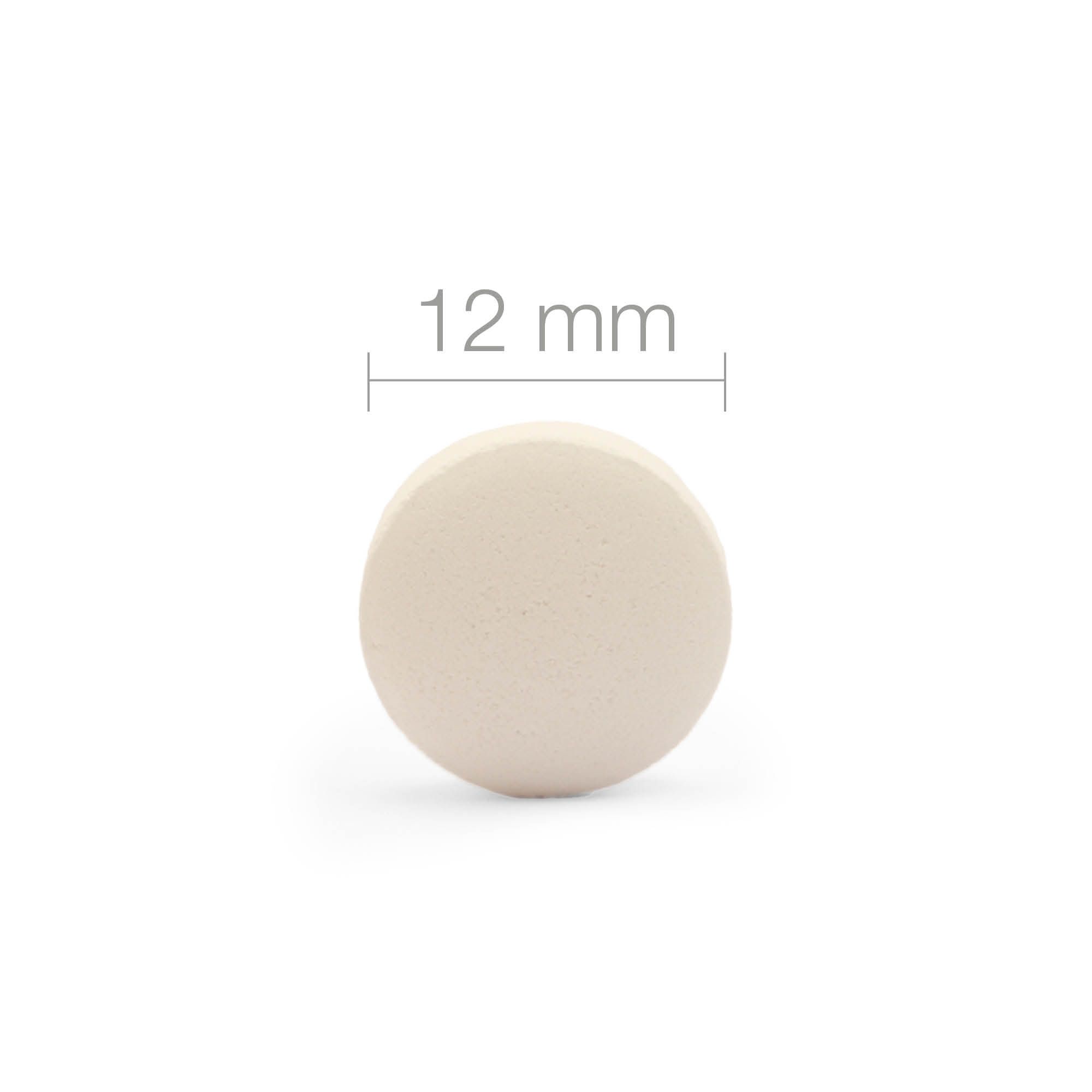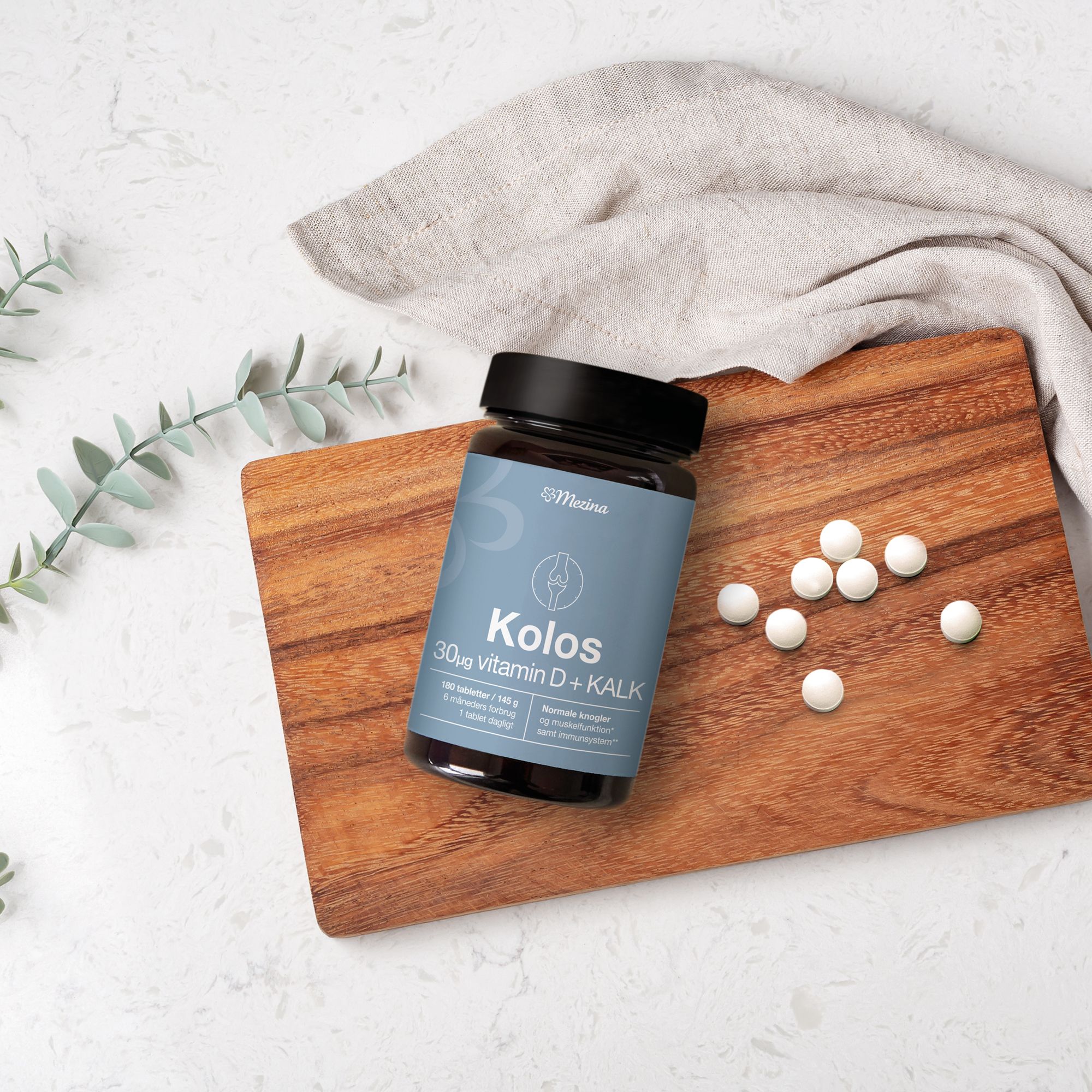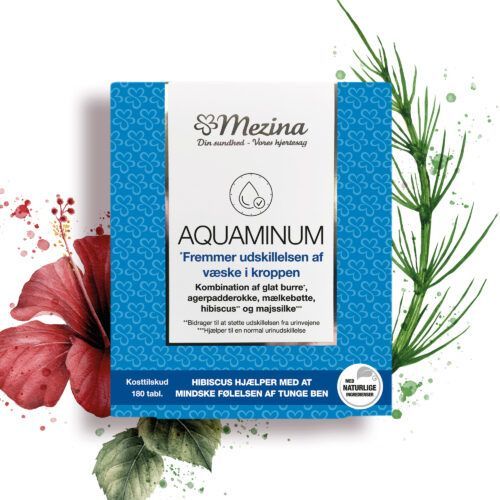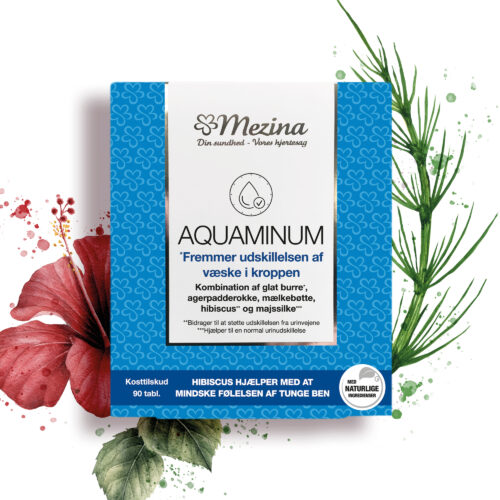Kolos is a nutritional supplement that contains both vitamin D (Cholecalciferol or D3) and calcium. Most Danes obtain sufficient calcium through their diet, but Kolos includes an additional 250 mg of calcium, which can complement the intake of those who fall short of the necessary amount without causing an excess for those who already consume enough.
Vitamin D holds a unique status among vitamins because, in cooperation with the sun, the body can produce the required amount. Studies have shown that individuals who spend a lot of time in the sun reach levels equivalent to a daily intake of 250 micrograms. This has influenced the perception of vitamin D, allowing for higher doses in supplements than before, and it has also highlighted that vitamin D affects more in the body than just bones.
Vitamin D is a versatile substance with various functions in the body. Its best-known role is aiding the absorption and utilization of calcium and magnesium from the diet. Other important areas include regulating the normal functions of the immune system and helping ensure normal development of the body’s cells. Adequate vitamin D supply (at least 20 µg per day) also has an impact on muscle strength and coordination, helping prevent falls, especially in individuals over 60 years old.
Who can benefit from supplements?
As people age, their ability to produce vitamin D in the skin diminishes. This applies to both men and women, but women have less bone mass to rely on and therefore experience issues earlier than men. In Denmark, up to 40% of women over 45 years old have insufficient vitamin D stores. Additionally, primarily individuals who, for various reasons, do not get enough sunlight exposure may need a vitamin D supplement.
Practically all Danes who don’t receive enough sunlight can benefit from a supplement, especially:
- Women post-menopause
- Elderly individuals (e.g., in nursing homes) who don’t spend enough time in the sun, as the elderly have more difficulty producing vitamin D in the skin than younger people
- People with dark skin (the darker the skin, the lower the production of vitamin D)
- Covered individuals
Vitamin D contributes to:
- Normal calcium absorption/utilization
- Maintaining normal bones and teeth
- Maintaining normal muscle function
- The normal function of the immune system
- Vitamin D plays a role in the cell division process
Calcium:
- Contributes to normal muscle function
- Plays a role in the cell division and specialization process
- Is necessary for maintaining normal bones and teeth
